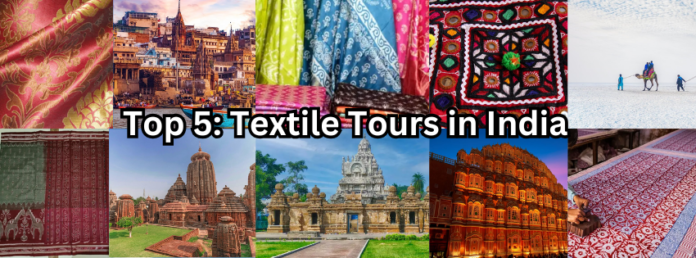Introduction:
India, a land of vibrant colors, intricate patterns, and timeless craftsmanship, has a rich history of textile artistry that dates back centuries. Textile Tours in India. From the luxurious Banarasi silk of Varanasi to the exquisite mirror-work embroidery of Kutch, every region in India has a unique textile heritage. Textile tourism in India offers an immersive experience where travelers can witness artisans at work, participate in workshops, and explore markets brimming with handwoven masterpieces. Whether you’re a textile enthusiast, a fashion designer, or a curious traveler, this guide will take you on a journey through India’s most iconic textile hubs.
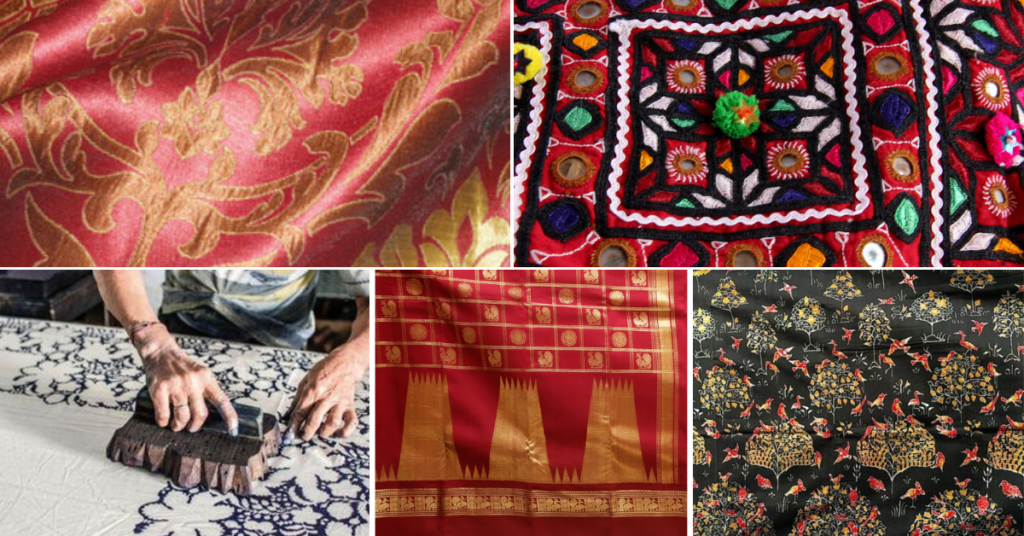
Why Choose Textile Tourism in India?
Textile tourism is more than just buying fabrics it’s about understanding the traditions, stories, and skilled craftsmanship behind each piece. Textile Tours in India. It provides a deeper appreciation for India’s diverse weaving techniques, supports sustainable practices, and helps preserve its rich heritage. Travelers can interact with artisans, visit weaving villages, and even try their hand at traditional textile techniques through workshops.
Top Textile Destinations in India
1. Varanasi – The Home of Banarasi Silk
Banarasi silk is synonymous with elegance and tradition, making Varanasi a must-visit destination for textile lovers. These sarees, known for their gold and silver brocade, intricate motifs, and rich textures, are woven using age-old techniques passed down through generations.
What to Do:
- Visit Weaving Clusters: Explore areas like Madanpura and Alaipura to see artisans at work on traditional handlooms.
- Interactive Workshops: Participate in weaving workshops to learn the basics of creating Banarasi silk.
- Shop Ethically: Buy sarees directly from weavers or government cooperatives to support the industry.
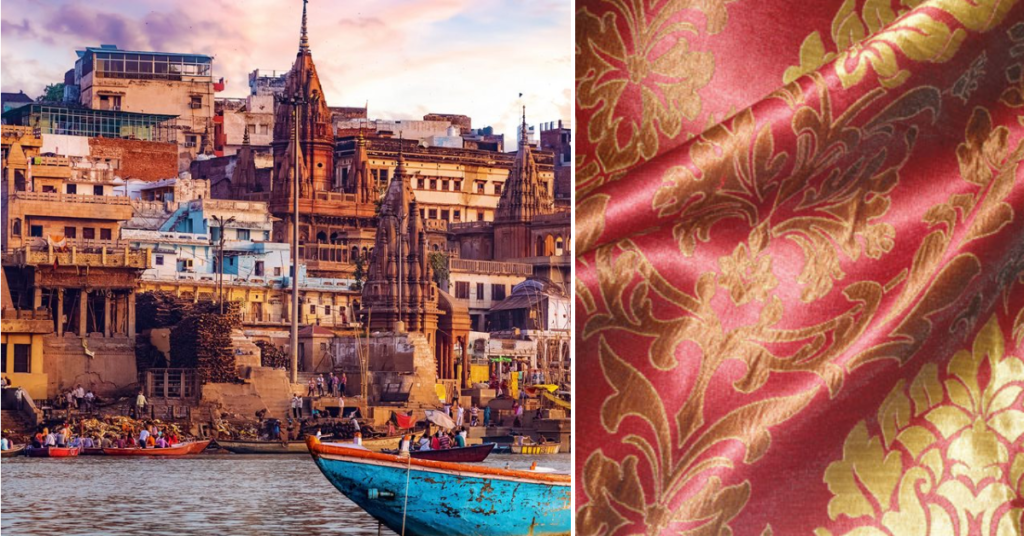
Where to Stay:
- BrijRama Palace – A luxurious stay by the Ganges with traditional interiors and a royal experience.
Pro Tip:
- Visit during the Banaras Hindu University textile exhibition to explore rare collections and interact with master weavers.
Also Read: Krishnapatnam Port – A Modern Port with a Fascinating Industrial Landscape
2. Jaipur – The Land of Block Printing and Tie-Dye
Jaipur, the Pink City, is famous for its vibrant textiles, including Bandhani (tie-dye) and Sanganeri block printing. The city’s bustling markets and artisan villages offer an immersive. Textile Tours in India, experience.
What to Do:
- Block Printing Workshops: Visit Bagru and Sanganer villages to try your hand at block printing.
- Textile Museums: Explore the Anokhi Museum of Hand Printing to learn about traditional printing techniques.
- Shopping: Browse Johari Bazaar and Bapu Bazaar for authentic fabrics and handcrafted textiles.
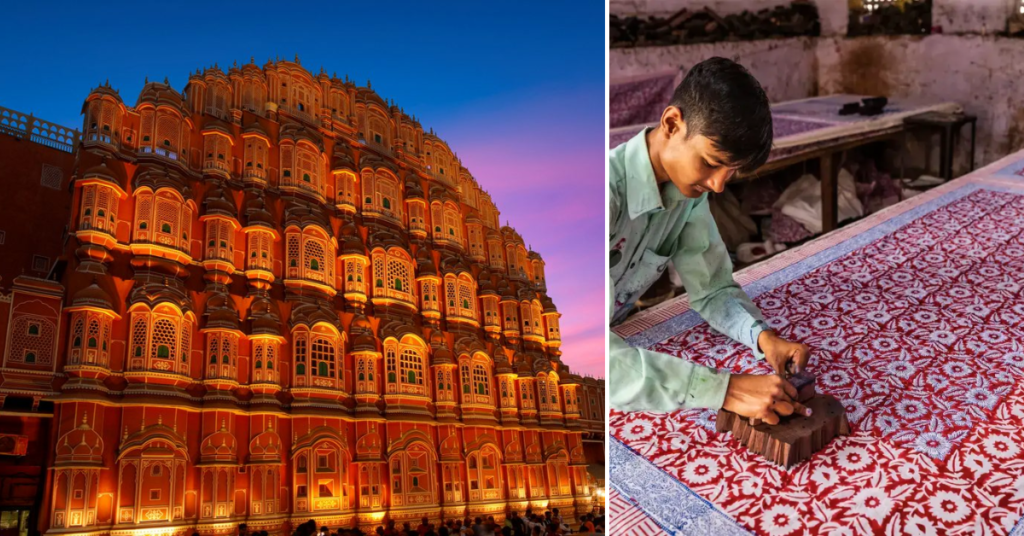
Where to Stay:
- Samode Haveli – A heritage hotel that offers a royal experience in the heart of Jaipur.
Must Visit: Exclusive of Ayodhya Ram Mandir Travel Guide: Routes, Stay, Darshan & More
3. Kutch – The Embroidery Wonderland
Kutch, in Gujarat, is renowned for its colorful and intricate embroidery, with different communities of Rabari, Ahir, and Mutwa bringing unique styles to life. The embroidery is often adorned with mirrors, beads, and vibrant threads.
What to Do:
- Visit Craft Villages: Head to Bhujodi and Nirona to meet artisans and watch them create their masterpieces.
- Embroidery Workshops: Learn Kutch embroidery techniques directly from skilled craftswomen.
- Attend Rann Utsav: Plan your trip around this cultural festival to witness Kutch’s textile heritage at its finest.
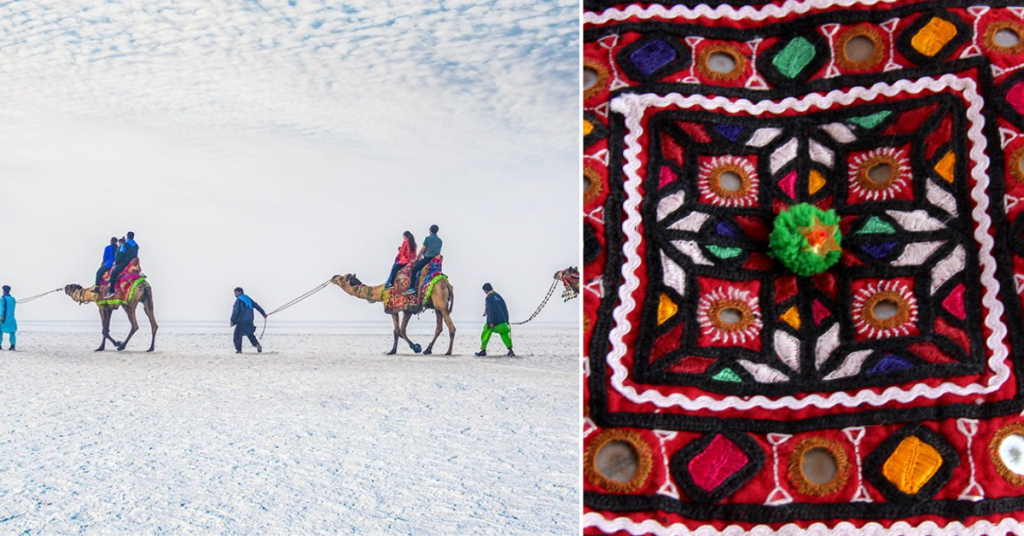
Where to Stay:
- Shaam-e-Sarhad Village Resort – A traditional stay offering an authentic rural experience.
Must Experience: Exclusive of 7-Day Mumbai to Goa Road Trip: Coastal Highways, Beach Stops & Monsoon Magic
4. Kanchipuram – The Silk City of South India
Kanchipuram silk sarees are revered for their durability, intricate designs, and cultural significance. Woven with precision, these sarees are a staple in South Indian households. Must Visit Place in Textile Tours in India.
What to Do:
- Weaving Demonstrations: Watch skilled artisans weave silk sarees using traditional techniques.
- Temple Visits: Many saree designs are inspired by temple carvings and motifs.
- Shopping: Purchase authentic Kanchipuram sarees directly from weavers’ cooperatives.
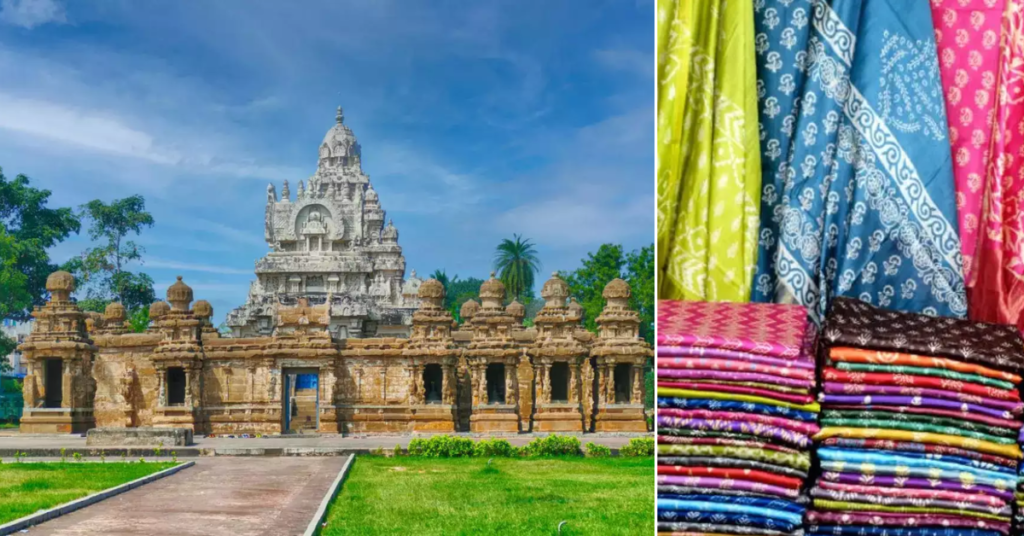
Where to Stay:
- GRT Regency – A comfortable stay with easy access to textile hubs.
Also Read: Somasila Dam – A scenic reservoir ideal for picnics and boating
5. Odisha – The Land of Ikat and Sambalpuri Weaves
Odisha’s ikat and Sambalpuri textiles are distinguished by their geometric patterns and earthy color palettes, created through an intricate dyeing process.
What to Do:
- Visit Weaving Villages: Head to Nuapatna and Bargarh to see ikat weavers in action.
- Workshops: Participate in resist dyeing and weaving workshops to understand the complex processes behind these textiles.
- Textile Tours: Join guided tours to discover Odisha’s rich textile heritage.
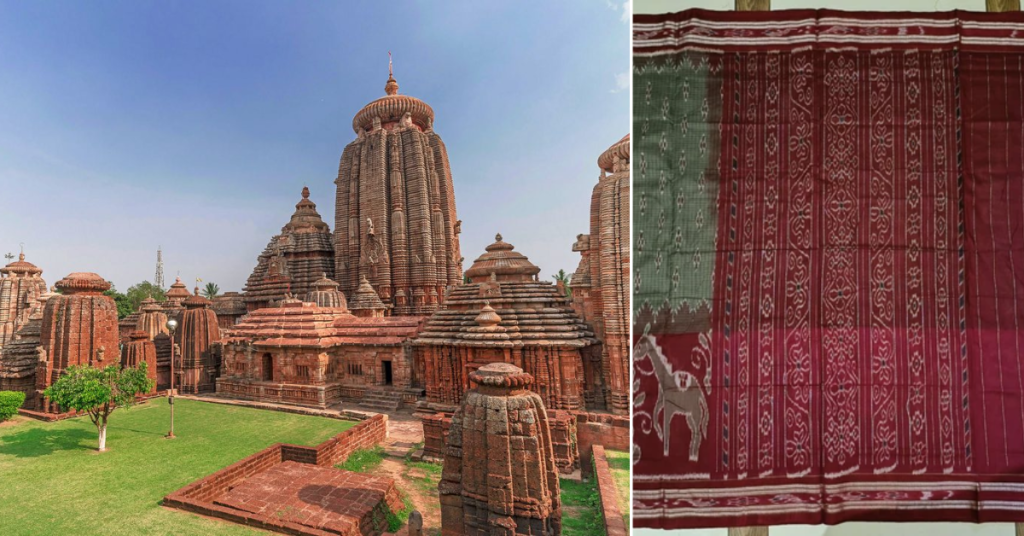
Where to Stay:
- Mayfair Lagoon – A luxurious retreat in Bhubaneswar with easy access to textile hubs.
Also Must Visit: The Ultimate Complete Guide to Agra Beyond the Taj Mahal
Interactive Textile Workshops in India
Many textile hubs offer workshops where visitors can learn traditional techniques and create their own fabric pieces. Here are some recommended experiences:
- Block Printing in Jaipur – Learn Sanganeri and Bagru printing techniques.
- Kutch Embroidery in Bhuj – Create your own embroidered piece with guidance from artisans.
- Banarasi Weaving in Varanasi – Try weaving a small section of a silk fabric.
- Ikat Weaving in Odisha – Experience the art of tie-dyeing and intricate weaving.
Travel Tips for Textile Tourism
- Plan Ahead: Research artisan villages, workshops, and exhibitions before your trip.
- Respect Local Customs: Always ask for permission before photographing artisans or their work.
- Shop Ethically: Purchase directly from weavers or government-certified cooperatives.
- Carry Cash: Many rural artisan hubs may not have card payment facilities.
Book Your Textile Tour
Make your textile tourism journey seamless with these resources:
- Flights: Skyscanner | MakeMyTrip
- Hotels: Booking.com | Agoda
Also Must Try: Ultimate information of Kerala Backwaters: Houseboat vs. Kayak
Conclusion: Weaving Stories Through Travel
Textile tourism in India is not just about fabrics it’s about connecting with the people who bring these traditions to life. Every weave, every stitch, and every pattern tells a story of heritage, dedication, and artistic brilliance. So, whether you’re looking to expand your knowledge, support local artisans, or simply admire the beauty of handmade textiles, a journey through India’s textile hubs will leave you inspired. Pack your bags, book your tickets, and get ready to unravel the magic of Indian textiles.
Frequently Asked Questions(FAQs):
ANS: Textile tourism involves traveling to regions known for traditional textiles, engaging with artisans, and learning about weaving and embroidery techniques.
ANS: Varanasi (Banarasi silk), Jaipur (block printing), Kutch (embroidery), Kanchipuram (silk sarees), and Odisha (Ikat weaving) are some of the best places for textile tourism.
ANS: Yes! Many destinations offer hands-on workshops, including block printing in Jaipur, embroidery in Kutch, and weaving in Varanasi and Odisha.
ANS: Buy directly from weavers or cooperative societies, visit craft villages, and participate in workshops to support traditional craftsmanship.
ANS: Winter (October to March) is ideal, as many regions host textile fairs and festivals during this period.

